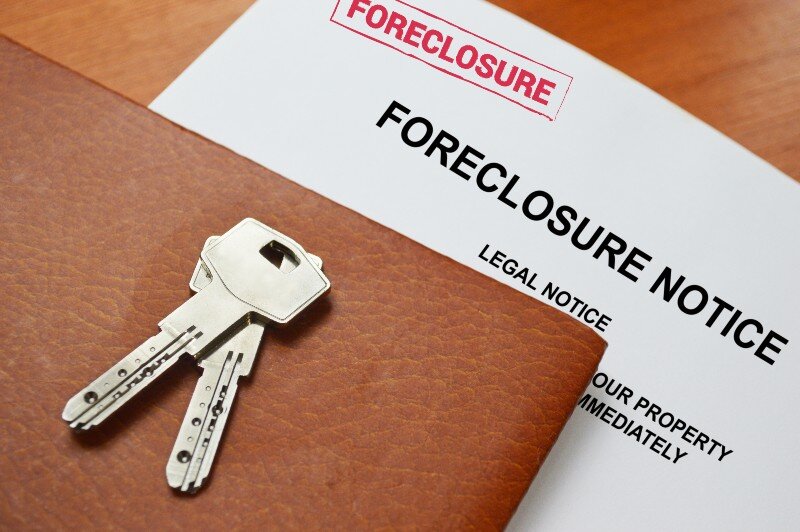
No homeowner wants to face the possibility of foreclosure. But sometimes, life doesn’t go as we plan, and financial hardship might occur. You may feel overwhelmed by missed mortgage loan payments, and the last thing you want to think about is losing your home.
Not to worry, missing a few payments is a warning that you must take action to avoid foreclosure proceedings. Your lender will work with you to get you back on track. We explain everything in detail below. Keep reading.
What Is the Foreclosure Process in Nebraska?
When a homeowner misses several mortgage payments, their lender has the right to foreclose. The type of foreclosure that a homeowner is facing will determine the process. There are two types: judicial and non-judicial foreclosure.
A judicial foreclosure begins when the lender goes to court and asks for an order allowing them to sell the property in a foreclosure sale. The lender automatically wins if the homeowner does not respond with a written answer. A borrower has the right to fight the foreclosure proceedings.
The homeowner must submit evidence that the court will consider. If the lender wins, the court will grant the order, and the property will be auctioned. When the court decides for the homeowner, the foreclosure proceedings stop.
Non-judicial foreclosures are the most common in Nebraska, and most lenders choose this option because it is much faster and costs less than going through the court system. The lender must follow the steps regulated by state laws to foreclose on a Nebraska homeowner, and Nebraska law clearly outlines each step in the process.
Step-by-Step Guide of the NE Foreclosure Process
Lien holders must carefully follow the procedure for foreclosing. If they neglect one of the steps, the homeowner has grounds to stop the foreclosure.
Notice of Default
The lender begins foreclosure by filing a notice of default with the county recorder. A notice of default details the amount of the missed payments. The lender must send a copy of the notice of default to anyone who filed for notice within ten days of filing.
Nebraska deeds of trust typically have a “request for notices” clause. The Nebraska Trust Deeds Act ensures the borrower receives a copy of the notice of default and notice of sale at their address.
Once the lender files the notice of default, the homeowner has one month for repayment. This repayment is also known as reinstating the loan, meaning the borrower keeps their mortgage payments up to date.
Notice of Sale
One month after they filed the notice of default, the lender must publish a notice of sale in the newspaper weekly for five consecutive weeks. They must also send a copy of the notice of sale to anyone requesting notification at least 20 days before the sale.
The Foreclosure Sale in Nebraska
Typically, the lender will make a credit bid for the property, which is usually less than what the property is worth. If the lender is the highest bidder and offers less than what is owing, they can ask for a deficiency judgment against the borrower for the difference. When a lender wins with the highest bid, the property becomes known as real estate owned.
Homeowners may get lucky, and a third party might win the property by bidding more than what is owed. In this case, the homeowner will receive the surplus.

How Does Foreclosure Affect House Selling in NE?
Selling your house before the final foreclosure sale date is your best option. Your goal is to sell your home at fair market value and pay off your mortgage loan. You might have to accept less than what you would like but paying your debt before foreclosure is the priority.
Selling your home means you will not have a foreclosure on your credit history. Typically, a foreclosure will stay on your record for seven years, making it difficult to obtain loans. You will have difficulty qualifying for another mortgage. .
Selling your house in Nebraska will allow you to pay off your promissory note without having a foreclosure on your record. A good credit rating means you can qualify for another mortgage sooner rather than later.
Homeowners must consider the time constraints when selling a house in foreclosure. Several factors affect the NE foreclosure timeline, but it can take six months to a year. Your best bet is to work with a reputable realtor, explain the situation, and price your house to sell. Your goal is to sell your home as quickly as possible, so you may not have the time to negotiate for top dollar.
Homeowners must inform their lender of their intent to sell. You must get your lender’s permission if considering a short sale. Usually, the lender will work with the owner because a sale is less work than a foreclosure. Once the homeowner can prove they have a legitimate offer, the lender will stop the foreclosure proceedings.
Unfortunately, when you are facing a foreclosure sale, you don’t have the luxury of time for negotiations. You will have to secure the best deal that you can get as quickly as you can. You can also consider a short sale with cash home buyers in Nebraska. They will make you a cash offer, and you can close quickly.
Nebraska Foreclosure Laws
Federal law protects homeowners’ rights when it comes to foreclosure. Non-judicial foreclosures are under the power of sale in trust or deed. A lender must send all foreclosure notices and follow all steps that you can find in the guide to NE foreclosure laws.
Nebraska state law regulates lenders and mortgage loans. Every Nebraska homeowner has the right to explore every opportunity to save their homes from foreclosure. Their lender should support borrowers who are trying their best. They will appoint someone to help the owner find the best solution for their financial situation.
How To Avoid Foreclosure in Nebraska
Homeowners who receive foreclosure notices will not necessarily lose their homes. A foreclosure does not happen overnight; it takes a significant amount of time. This time allows homeowners to find ways to save their houses. There are several ways that you can stop the foreclosure process from happening.
You should contact your lender and discuss a loan modification. Negotiate a more affordable mortgage payment or a plan for repayment of arrears. You can discuss adding amounts to the end of your loan to make up for missed payments.
You can ask about refinancing your mortgage loan. You must contact your lender before the foreclosure process begins. They can restructure your mortgage loan into a new loan, and you may qualify for better terms or lower interest rates. Refinancing can work to your advantage if you have some equity in your home.
Homeowners in Nebraska also have the option of a deed in lieu of foreclosure. You will hand the keys to your house to your lender, and they become property owners. You will not be required to make any more payments, and you will save your credit score from the blemish of foreclosure, but you will lose your home.
You can consider a short sale. Homeowners can sell their homes for less than what they owe to their creditors. Your lender will have to grant permission to do this, but it is sometimes better than a foreclosure. We buy houses Lincoln residents love and are eager to find, so that could be a solution for you. You can use the money from the sale to pay your mortgage loan and negotiate a plan to repay the remainder.
Chapter 13 bankruptcy is also an option. It is known as the wage earner’s bankruptcy. This type of bankruptcy allows people to create a plan to pay off their debt. Once a person has filed for bankruptcy, the foreclosure process automatically stops. You might have to decide whether you want bankruptcy or foreclosure on your credit report.
Nebraska does not offer homeowners the right of redemption after the foreclosure sale. Once the sale is final, the homeowners are out of options. So if you are facing a foreclosure sale, you can sell a house fast in Papillion. The best way to get the most money for your home and property is to sell it before it gets to the auction.
Conclusion paragraph
Homeowners facing foreclosure should not procrastinate. You can ask for a free consultation from a company that buys houses in foreclosure, and they can make a cash offer that may solve your financial dilemma. A foreclosure is the last thing you want to see on your credit report.
You can sell your home and start fresh. Financial hardship can happen to anyone. Foreclosure does not have to be the end of the world, but it could be the wake-up call you need to get your finances in order.

